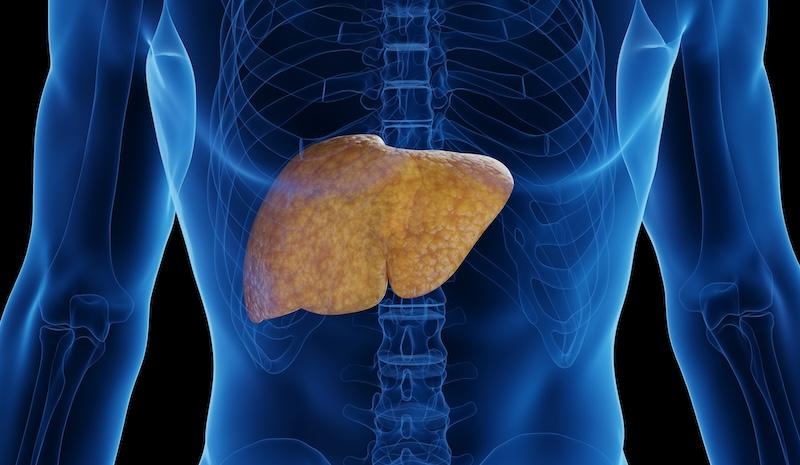New drug targets ‘zombie cells’ in effort to prevent liver disease, cancer
A new drug candidate developed by Tulane University researchers may work to prevent a common type of fatty liver disease. The disease, metabolic dysfunction-associated steatotic liver disease (MASLD), sometimes leads to cirrhosis and liver cancer.
Linked to obesity and diabetes, MASLD affects 38% of adults and is believed to be caused by the spread of senescent cells in the liver. Also called “zombie cells,” these cells have stopped functioning but continue to live, attacking the liver, spreading toxins and setting the stage for a number of related liver diseases.
In a study published in Nature Aging, the newly developed drug called 753b targets and degrades two proteins that senescent cells rely on to survive. In mice, the drug successfully reduced the amount of fat and scar tissue built up in the liver caused by the senescent cells.
“Chronic fatty liver disease is a global problem,” said corresponding author Liya Pi, assistant professor of pathology at Tulane University School of Medicine. “Not only did the drug selectively target senescent cells and slow the progression of MASLD, it also halted the development of associated liver diseases as well as hepatocellular carcinoma.”
Hepatocellular carcinoma is the most common form of liver cancer, and the study found that treatment with 753b actually reduced the size of liver tumors in mice with MASLD, as long as the cancer was not fully established.
The drug candidate is part of a broad class of senescent cell-targeting drugs called senolytics. Pi said that 753b shows promise due to its selectiveness in only targeting harmful senescent cells that are attacking the liver.
“This is the first study showing this compound having a high efficiency in senolytic clearance,” Pi said. “More research is needed but hopefully this is a potential tool that patients can one day use to control this disease.”
The study was a collaboration between Tulane University, the University of Texas Health Science Center at San Antonio and the University of Florida.

